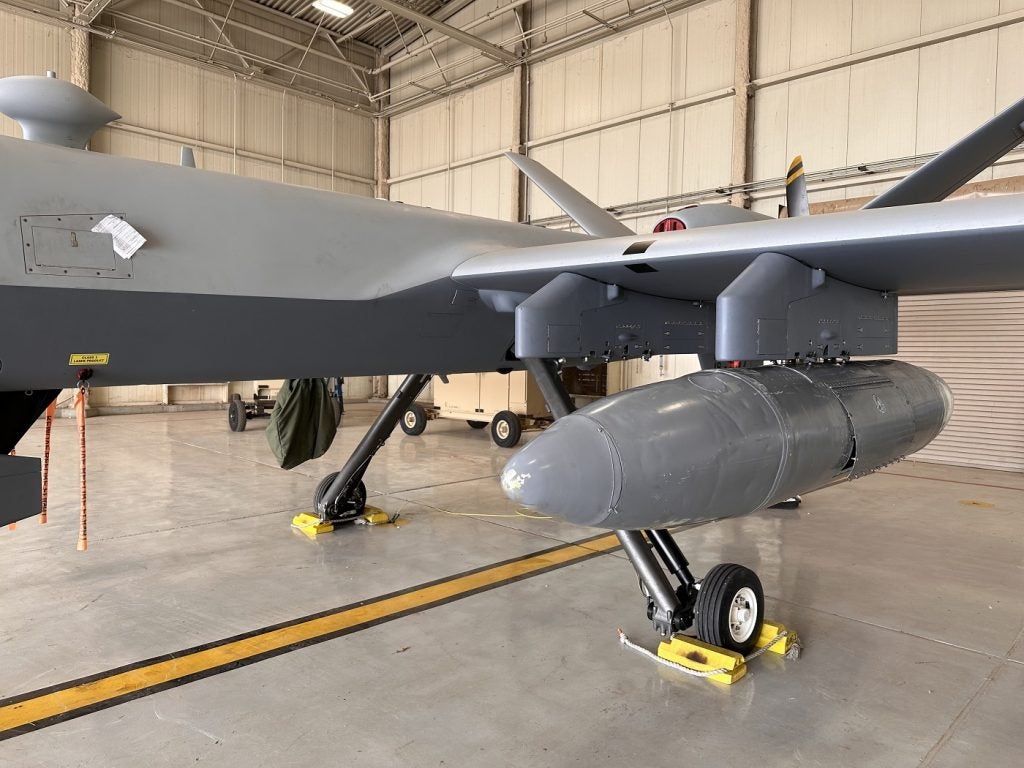The MQ-9 Reaper, a remotely piloted aircraft, recently achieved a milestone by completing its first landing on a dirt landing zone.
The mission, conducted by a collaboration of Air Force Reserve Command (AFRC) units and Special Operations forces, highlights the aircraft's enhanced operational capabilities and potential for future combat scenarios.
An improving capability
Just south of Fort Stockton, Texas, the Nine Mile Training Center was the location for this achievement. The private armed forces training centre offers vast terrains, ensuring privacy and providing an opportunity to discover the MQ-9 Reaper's capabilities.
On 15 June, members from the 2nd Special Operations Squadron, 727th Special Operations Aircraft Maintenance Squadron, and 311th Special Operations Intelligence Squadron joined forces with Airmen from the 26th Special Tactics Squadron at Cannon Air Force Base, New Mexico.
Their mission was to carve a milestone into Air Force Special Operations Command history by conducting the first-ever MQ-9 landing on a dirt landing zone.
Historically, the MQ-9 Reaper relied on line-of-sight antennas, with aircrew members manually flying the aircraft. However, with this recent breakthrough, the MQ-9 can now take off and land from any location globally.
General Atomics are the supplier of the MQ-9 Reaper and was awarded a $7.4bn contract in 2020 from the US Air Force for the unmanned aircraft system (UAS). The US Marines also received the first of eight Q-9 Reapers last month, delivered under a joint contract with the US Air Force.
According to GlobalData's "The Global Military UAV Market 2022-2032" report, General Atomics is anticipated to account for the fourth highest revenue share of $0.7 billion over the forecast period in the North American market. The company will build the MQ-9 Reaper and the MQ-1C Gray Eagle for the US Air Force and Army.
Lt. Col. Brian Flanigan further explained the strategic implications of this achievement, stating, "This capability will be critical in 'tomorrow's fight' and nests perfectly with the Air Force's Agile Combat Employment concept."
A capability already in demand
Focusing on smaller footprints, distributed operations, increased survivability, and generating combat power aligns with the Reaper's newfound capability. Leveraging citizen air commandos and diverse backgrounds enables the application of existing capabilities like satellite launch and recovery to future combat scenarios.
The MQ-9 SLR (Satellite Launch and Recovery) capability allows access to short, narrow, and unprepared locations and enables creative applications traditionally not provided by remotely piloted aircraft (RPA). The team demonstrated this versatility by employing a travel pod attached to the MQ-9, executing a resupply of the 26th Special Tactics Squadron on the dirt landing zone.
Dubbed "Reaper Express," this operational concept provides the ability to deliver vital supplies in confined areas where cargo aircraft might face limitations. Flanigan highlighted its significance, saying, "It may not be able to carry much, but what it can hold might be the difference between getting that critical aircraft part to an isolated airfield or bringing in a blood supply for casualties sustained during a base attack."
While the MQ-9 Reaper remains in high demand for its traditional roles in intelligence, surveillance, and reconnaissance, its ability to swiftly land and execute engine-running offloads opens up secondary or tertiary mission possibilities.
The MQ-9 Reaper aircraft was deployed to Romania by the USAF in 2021, the Royal Netherlands Air Force received the plane, and Poland leased the MQ-9 Reaper for reconnaissance missions both in 2022, showing the international scope of the UAS.
Major Dan Carlson, 2nd SOS MQ-9 chief pilot, affirmed the continuous expansion of MQ-9 Reaper capabilities, stating, "The unique ability to manoeuvre the MQ-9 to operate anytime, anyplace is a relatively new capability and one that is transforming how we prepare for tomorrow's fight as well as today's."
Additionally, the certification exercise served as a platform for intelligence analysts to contribute and enhance the Special Tactics Squadron's mission, regardless of their operational location.
As the MQ-9 Reaper continues to push boundaries and evolve its capabilities, the joint force anticipates its impact on future combat operations. With its ability to operate from remote dirt landing zones and its versatile applications in critical supply delivery, the MQ-9 Reaper is solidifying its position as a key asset.









